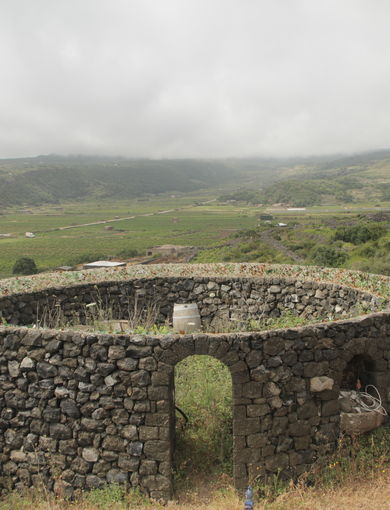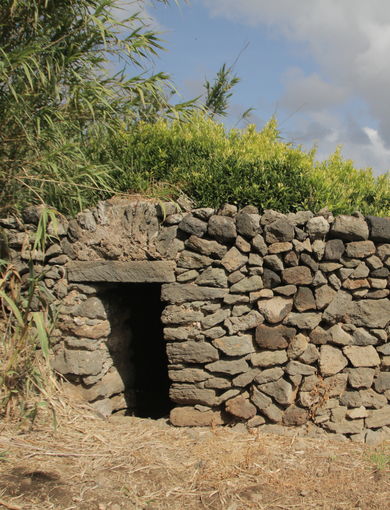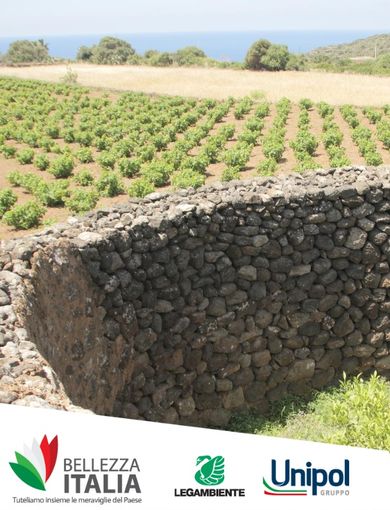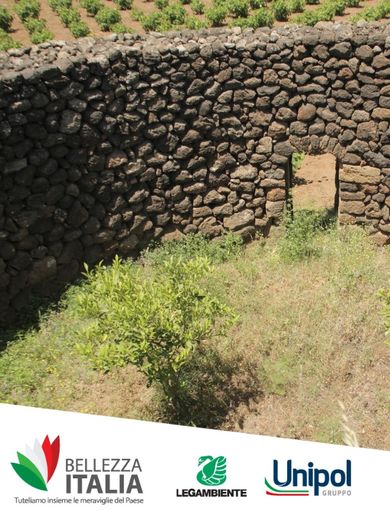Gardens by the sea in Pantelleria
A cylindrical wall made of dry black stones and a tiny opening, so low that you have to duck your head when entering. Inside, just a single tree, a jealously guarded citrus tree protected from the elements, from the frost and the wind, which grows thanks to the microclimate created within and the humidity that this strange construction manages to retain. We are talking about the “giardino pantesco”, one of the most unique rural relics on the island of Pantelleria, a kind of time-honoured open-air laboratory which over the centuries has refined its farming and construction techniques in order to deal with water shortages and extreme weather events.
As part of the Bellezza Italia campaign, Legambiente and the Unipol Group, thanks to the collaboration of Pantelleria National Park and the Department of Agriculture, Food and Forestry Sciences of the University of Palermo, have surveyed the over 400 gardens on the island: a comprehensive and original project which has provided a valuable map with photos, descriptions, georeferences and details on the state of conservation of the gardens. Some of these, in terms of type and location, have now been added to an itinerary so people can discover the island from unusual and original perspectives.
The work carried out by Legambiente and the Unipol Group was presented on Friday 8 October during a walk that took in some of the ‘Pantelleria gardens’ in the valley of Monastero, along one of the island’s most beautiful paths. Those who took part in the walk included Edoardo Zanchini, vice chairman of Legambiente; Marisa Parmigiani, Sustainability Manager of the Unipol Group; Sonia Anelli, director of Pantelleria National Park; Giuseppe Barbera, of the University of Palermo and one of the leading experts on the rural landscape of the Mediterranean.
“We were really enthusiastic about supporting this project, which is fully in line with the goals of the Bellezza Italia campaign: climate change, beauty and the protection of our national heritage - explains Marisa Parmigiani, Sustainability Manager of the Unipol Group. Rather than limiting ourselves to the excursion, we also decided to produce a Guide to promote this practice in all those places that are increasingly exposed to protracted droughts, because the need to spread expertise that helps drive up resilience is becoming more and more urgent.”






